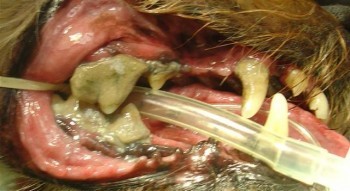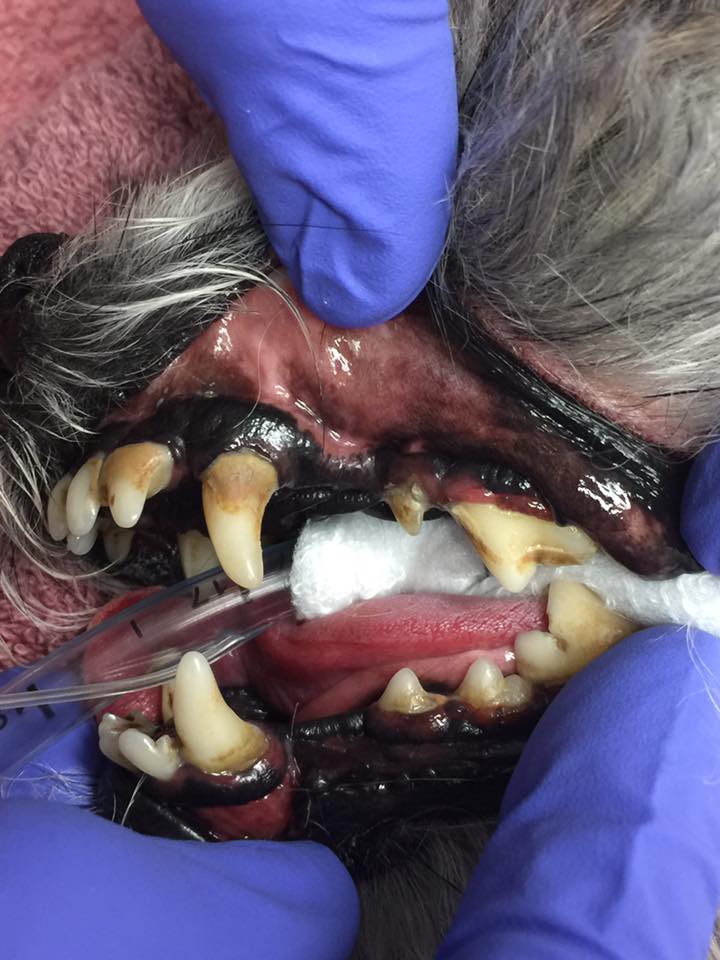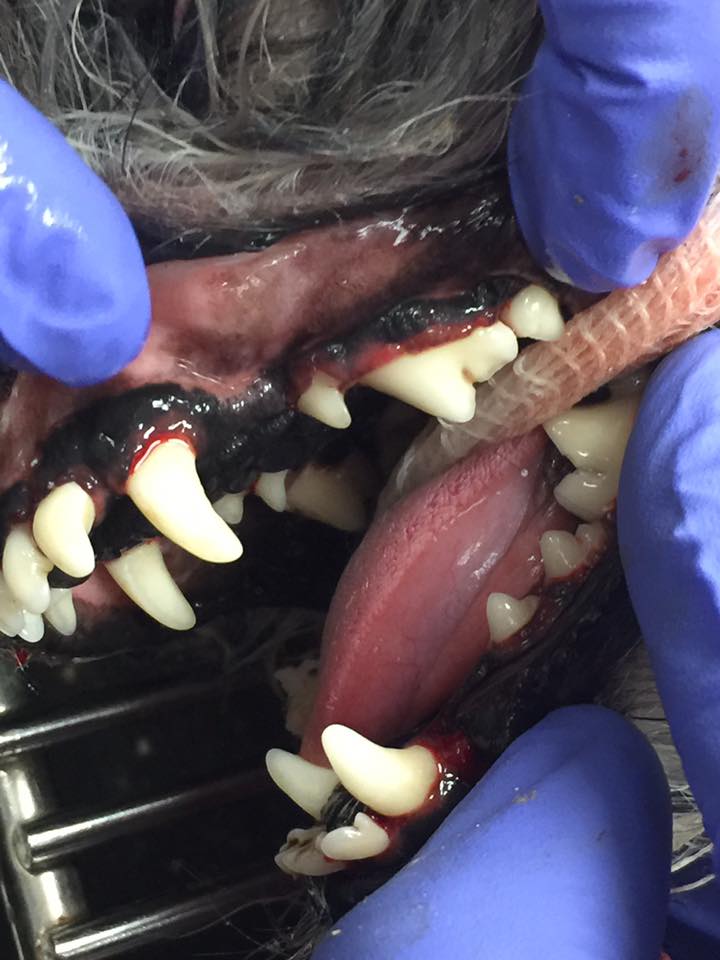|
Dental Disease: Periodontal Disease
Welcome to the Canine Periodontal Disease page at Little Critters Veterinary Hospital, located in Gilbert, AZ. This page is dedicated to educating pet owners about the importance of dental health in dogs. Periodontal disease is not only one of the most common health issues in dogs but also one that can have serious implications if left untreated. Here, we delve into the causes, symptoms, and consequences of periodontal disease in canines, emphasizing the need for regular dental check-ups and proper oral hygiene. Our aim is to provide you with the knowledge and tools necessary to prevent this disease and maintain your dog's oral health. At Little Critters Veterinary Hospital, we understand the crucial role that dental care plays in the overall health and well-being of your furry friend, and we are committed to offering the best possible care and advice. Explore our page to learn more about how you can help your dog lead a healthier, happier life with a clean and healthy mouth.

Periodontal disease can result in significant pain for the pet and unfortunately, if your pet does not see his/her veterinarian on a regular basis, will go unrecognized until the disease is very advanced. Also, all the thick yellow tartar is full of bacteria (disease causing organisms) that could potentially result in systemic disease. Many veterinarians are concerned that severe periodontal disease can result in infection of the heart valves and lead to heart disease. Older pets and pets with existing heart disease are routinely placed on antibiotics just prior to a dental cleaning to help protect them from the bacteria that may enter their blood stream. Most pets with periodontal disease will have halitosis (oral odor) that is caused by the bacteria in the oral cavity. Other problems with periodontal disease include abscessed teeth that may be seen as facial swelling, tooth loss and exposed tooth roots. Again, periodontal disease can be very uncomfortable for our pets and should be prevented or at least treated when recognized.
Professional Dental Cleaning or Prophy
Once periodontal disease has developed the teeth cannot be adequately cleaned at home and the pet will require a complete dental cleaning under general anesthesia. Essentially, the pet will be placed under general anesthesia to allow easy access to all tooth surfaces and than a cleaning and examination procedure similar to what we would have done at our dentist will be completed. The teeth are cleaned of all tartar on the tooth surface and under the gum line and thoroughly polished. Next, all the teeth are examined and probed for potential dental disease and the gums are examined for disease such as tumors. If diseased teeth are suspected, x-rays are taken to confirm the disease and the owner is consulted on the appropriate course of action for their pet. The treatment can involve many different options including extraction, root canals, crowns and many more. If needed, the pet can be referred to a veterinary dentist for more specialized care. Prior to completion of the dental procedure fluoride is applied to all the teeth and the pet is allow to awaken.Tooth Cleaning or Prophy
Prior to Cleaning & Following Professional Dental Cleaning
 
|
|
Home Dental Care
Home care now becomes more important and may vary depending upon your individual pet. Regular brushing of the teeth with a pet toothbrush and toothpaste are always the best option for keeping the teeth in their new polished condition. Many pets will not tolerate brushing immediately so many owners will start by gently applying the flavored tooth paste to their finger and lightly brushing over the gums on each side. Once the pet tolerates this, the owner can advance to using a brush and gradually increasing the brushing time. Ofcourse, the best course of action is to start tooth brush training in youngsters, but any can pet can potentially be taught. If your pet declines to allow tooth brushing, there are other antibacterial products on the market that your vet may prescribe. The easiest products are a liquid or gel based antibacterial solution that can be flushed or applied onto the gums.
Dietary therapy
Diet can also be an important tool in avoiding periodontal disease. Typically, dry diets will cause less tartar build-up on teeth and canned, moist, semi-moist and human foods will result in significantly more tartar. Therapeutic diets are also available and the principle behind most of these diets is the formation of a large dry kibble that doesn’t immediately shatter when chewed but rather acts as a brush to help clean the tooth’s surface. So, regular dry diets will only contact the tips of the teeth and the therapeutic diets are designed to actually contact the upper surfaces of the teeth. Science Diet t/d or Royal Canin D/D are commonly used dental diets that are well tolerated by most pets, but there are many other diets available based on the same principle. Please consult with your veterinarian prior to any diet change and she/he will help you with the appropriate selection for your pet. Also, all diet changes should be made slowly to avoid gastrointestinal disease
|